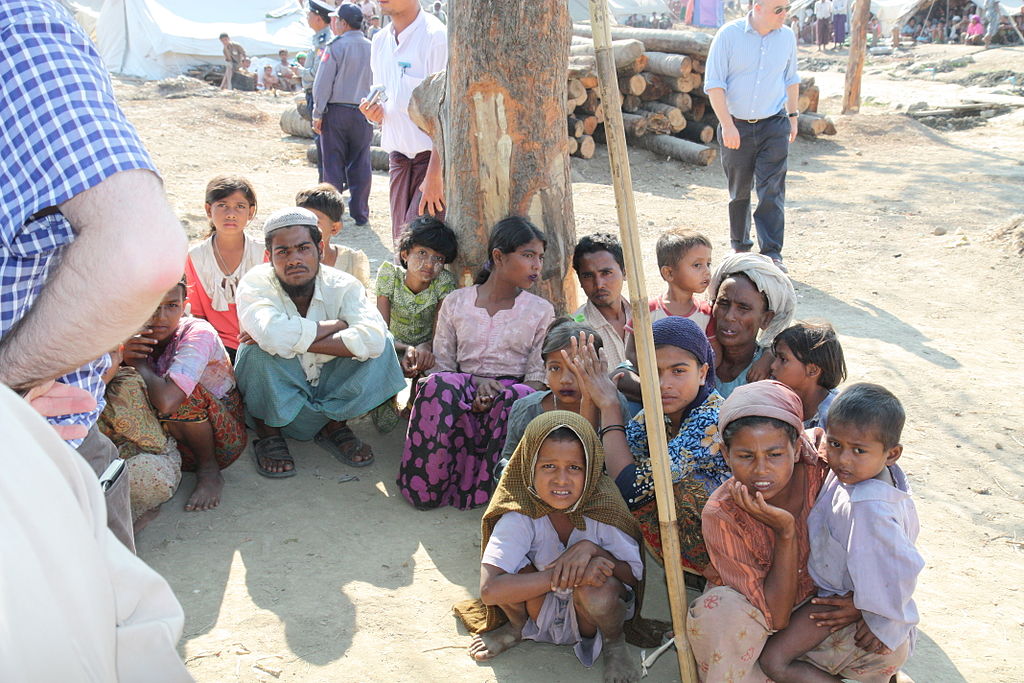Since coming out of a lengthy military rule, the country of Myanmar has transitioned into a democratic government with a Nobel Peace Prize winner, Aung San Suu Kyi, as its prime minister. However, despite the political changes, latent ethnic tensions and anti-Muslim sentiments have remained the same, and a recent book suggests that they reach even the top of the government, including Suu Kyi, herself. The book goes so far as to claim that Suu Kyi, following an awkward interview with BBC’s Mishal Husain, told an aide that, “No one told me I was going to be interviewed by a Muslim.” While it might be surprising that a Nobel Peace Prize winner could harbor such animosity for a group of people, there is evidence that Myanmar is in the middle of committing genocide against one of the country’s Muslim ethnicities, the Rohingya.
Myanmar’s Diversity
Myanmar is one of the most ethnically diverse countries in the world, boasting 135 recognized ethnic groups. However, 68% of the population is Bamar, which is composed of only nine of these ethnicities. This large majority, together with the fact that 80% of the 51 million people in the country are Buddhist, strains ethnic and religious minorities.
The Rohingya
Nowhere is this strain more apparent than in the state of Rakhine, along Myanmar’s western border. This state is home to members of the Rohingya ethnicity, who are some of the few in the country who are Muslim. Some areas in Rakhine, especially near the northern border with Bangladesh, are almost entirely Rohingya.
Despite their prevalence in the state of Rakhine, the Rohingya are not one of the ethnic groups recognized by Myanmar’s government. This is the result of generations of stigmatization against the Rohingya, and it is part of what some organizations are calling a state-sponsored genocide of the Rohingya people.

The World’s Most Persecuted People
The persecution of the Rohingya in Myanmar goes back generations, but signs of outright genocide can be traced to 1982, when the government of Myanmar updated its citizen identification process. The changes left the Rohingya without government identification, stripping them of citizenship and making it difficult to find jobs, open businesses, and benefit from basic legal protections.
Over the course of the next few decades, the government of Myanmar refused to acknowledge the existence of the Rohingya as a people, instead referring to them as immigrants from Bangladesh and treating them as non-citizens. In 2014, the government conducted a census of its population, but refused to let Rohingya participate unless they listed themselves as “Bengali.”
Other social and economic conditions imposed on the Rohingya have led observers to call them the “world’s most persecuted people,” living in an environment that resembles apartheid.
2012 Riots and Subsequent Internment
The simmering religious and social tension against the Rohingya came to a boiling point in June 2012. Riots led to destruction and violence on strict ethnic lines. When Myanmar’s military was called in to restore peace, sources say that it focused its energy on controlling the Rohingya.
As part of its response to the rioting, Myanmar’s security forces moved most of the Rohingya into concentration camps. These forced displacements, initially meant to be temporary, are still ongoing, and have impacted more than 140,000 Rohingya, a significant number of the estimated 1 million Rohingya in the area. The squalor of the concentration camps has become more extreme, with few basic services provided. International aid has been stopped from reaching the affected areas and the Rohingya have been prevented from leaving. Those Rohingya who are not in the affected areas have been fleeing the country in droves to avoid the worsening persecution.
Studies by the Human Rights Clinic at Yale Law School and the International State Crime Initiative have deemed Myanmar’s conduct towards the Rohingya to be genocide.
What You Can Do To Help
One of the more troubling aspects of the plight of the Rohingya in Myanmar is how little attention the media has paid to the escalating situation. Writing to your local and regional news outlets, urging them to report on the situation in Myanmar, is one way to shed light on the matter. Sharing comprehensive information and updates on the oppression of the Rohingya from human rights watchdogs such as the US Campaign for Burma, the Burma Partnership or Human Rights Watch through your social networks is another. Additionally, specifically for those of you in the United States, presidential candidates are more susceptible to pressure to speak on an issue during a political campaign, so now is an excellent time to bring this situation to the candidates’ attention. Private organizations like We Are Help or Partners and religious organizations like Muslim Aid are also taking donations to help those affected.
Lastly, keep Ethical Traveler’s motto ‘vote with your wings’ in mind. As travelers, we have the power to support ethical destinations as well as chastise dictatorial regimes or destinations that violate the basic rights of their citizens. If you do decide to visit Myanmar, make sure you are well informed on the political situation and always choose responsible travel options that benefit the local population. Find ways to increase exposure of the plight of the Rohingya through your visit and as such contribute to growing pressure on Myanmar’s government.
Read Ethical Traveler's Reprint Policy.
